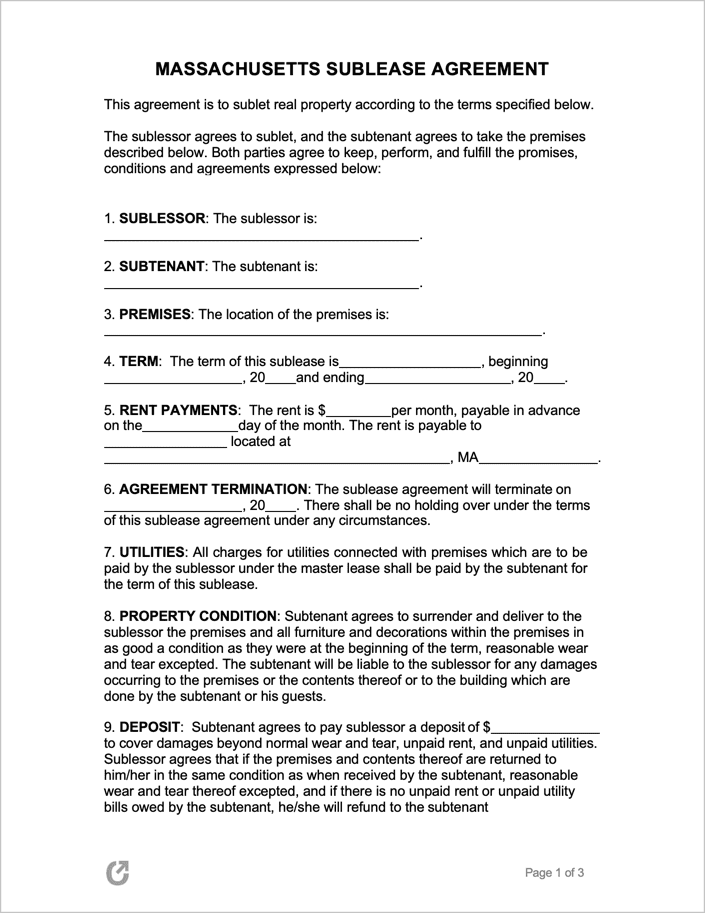Massachusetts Sublease Agreement
The Massachusetts Sublease Agreement is a legal contract allowing a tenant (the “sublessor”) to re-rent their property to another party, known as the “sublessee” or “subtenant.” Tenants typically use this form with a lease that doesn’t expire for a considerable amount of time, usually more than three (3) months. Common reasons for subleasing include tenants needing to relocate or those who don’t want to pay monthly rent for an unoccupied property. Subleasing introduces a new tenant into the property, taking over rent payments until the original lease’s expiration.
Massachusetts law does not restrict subleasing; whether it’s permitted depends on the original lease signed with the landlord.
Benefits and considerations of subleasing in Massachusetts:
Pros:
- Financial relief for the original tenant.
- Flexibility to move without breaking the lease.
- Utilizing unoccupied spaces, preventing waste.
Cons:
- The original tenant remains responsible for rent if the subtenant fails to pay.
- The sublessor is liable for any damage caused by the sublessee.
- Potential complications if the original lease doesn’t allow subleasing.
